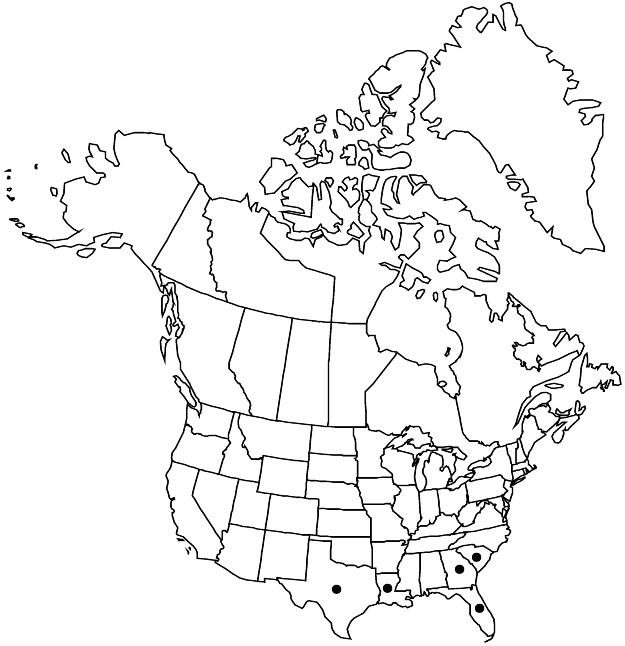Persicaria meisneriana var. beyrichiana
Sida 21: 291. 2004.
Plants annual, 3–10 dm; roots not also arising from proximal nodes. Stems erect or scandent, ribbed, glabrous or pubescent with tufted hairs and glandular hairs; prickles 1–1.5 mm. Leaves: ocrea brownish, cylindric, 8–20 mm, chartaceous, base inflated or not, sometimes with prickles, margins oblique, eciliate or ciliate with bristles 0.2–0.5 mm, surface glabrous or, rarely, glandular-pubesent; petiole 0.1–0.5 cm, leaves sometimes sessile; blade usually linear-lanceolate to lanceolate, rarely hastate, 5.5–14 × 0.8–1.5 cm, base cordate to truncate or cuneate, margins entire or, rarely, hastate, ciliate, apex acuminate, faces abaxially and adaxially usually glabrous, rarely appressed-pubescent with eglandular hairs, sometimes also with glandular hairs, major veins retrorsely prickly. Inflorescences capitate or racemelike, uninterrupted, 4–15 × 3–8 mm; peduncle 10–80 mm, stipitate-glandular at least distally, often with retrorse prickles proximally; ocreolae overlapping, margins eciliate or ciliate with bristles to 0.5 mm. Pedicels mostly ascending, 2–3.5 mm. Flowers 2–3 per ocreate fascicle; perianth white to pink, glabrous, accrescent, not becoming blue and fleshy in fruit; tepals 5, connate ca. 1/2 their length, broadly elliptic to ovate, 2.3–3 mm, apex obtuse; stamens 5, filaments distinct, free; anthers yellow or pink, ovate; styles 3, connate to middle. Achenes included, dark brown to black, 3-gonous, 3–4 × 2–3 mm, shiny, smooth.
Phenology: Flowering Jun–Oct.
Habitat: Swamps, wet ditches, thickets
Elevation: 0-80 m
Distribution

Fla., Ga., La., S.C., Tex., Mexico, West Indies, Central America, South America, se Africa.
Discussion
Selected References
None.